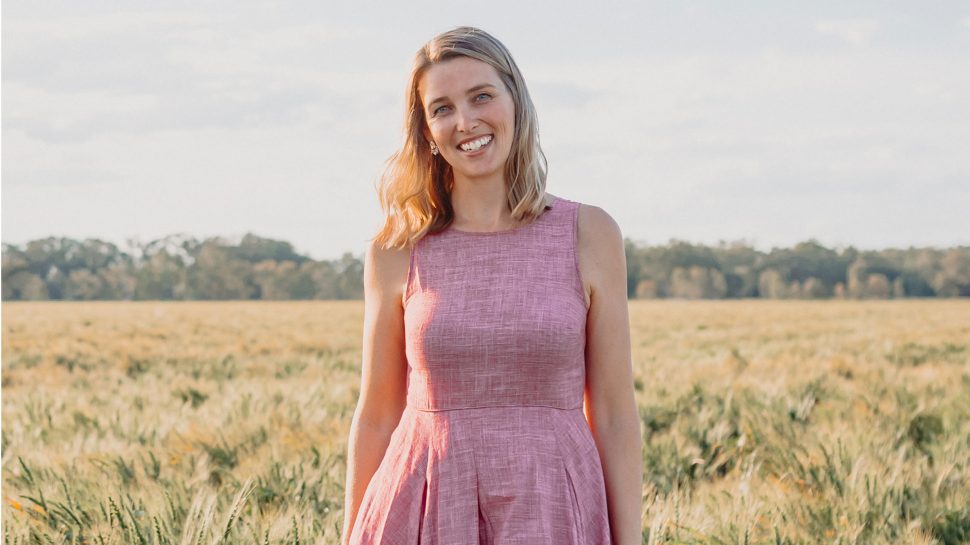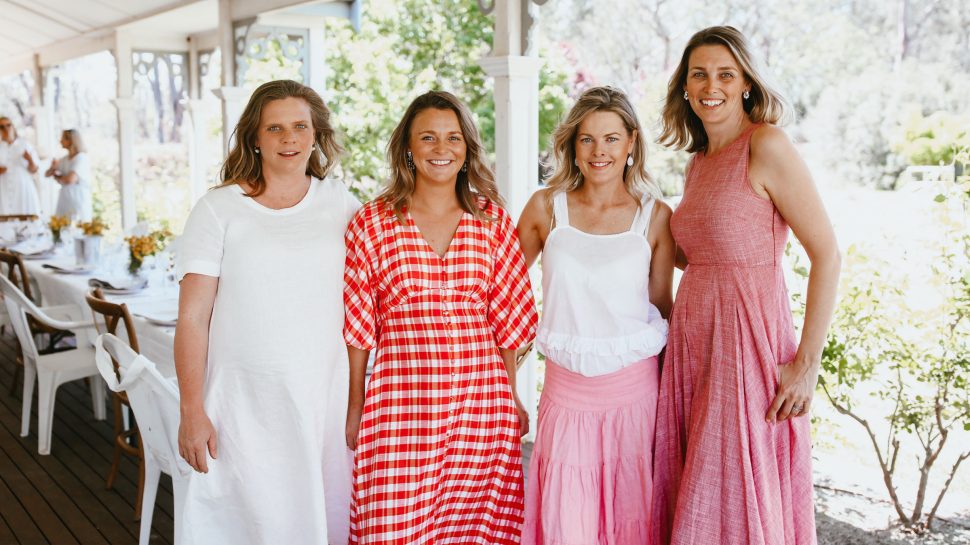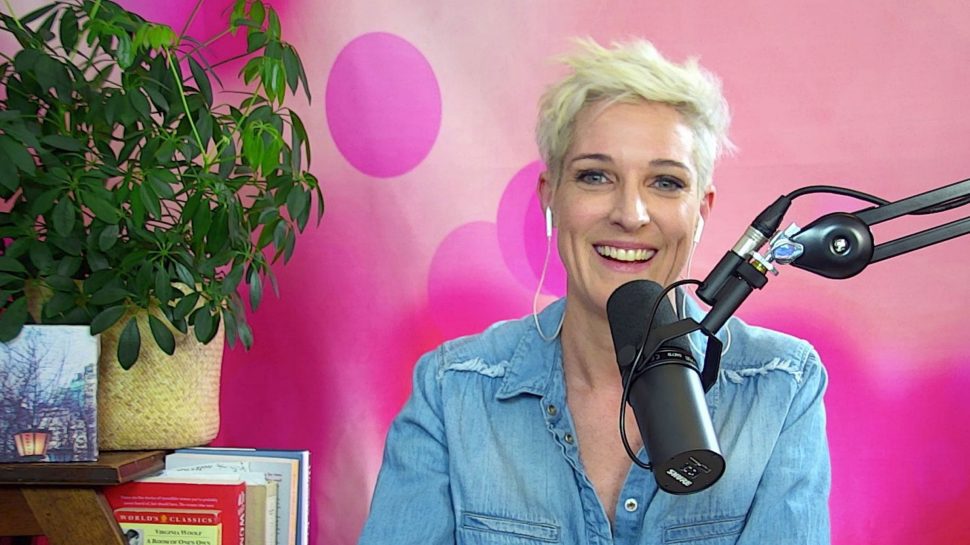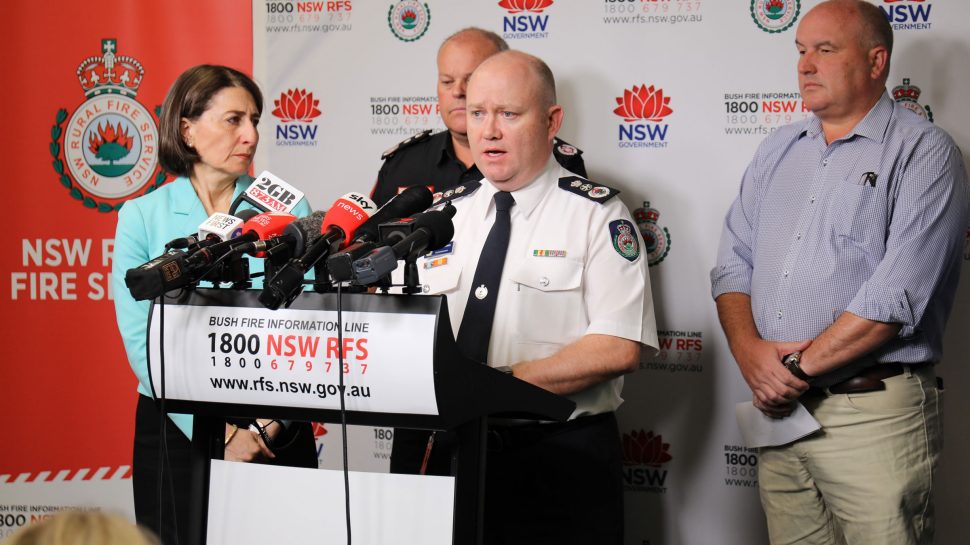Grace Brennan: A different take on life in the bush
As part of our Inspiring Australians series, we talk to Grace Brennan about the impact #buyfromthebush and the pandemic had on rural businesses, and the story that should be told about life in the country.

Most people, when talking about a drought, think of dust clouds, cracked earth and a despairing farmer. But not Grace Brennan. The image she holds in her mind is that of a woman at the kitchen table with her head in her hands. This was an unseen reality in many rural communities during the dry that struck Australia in 2019.
Grace, who married a fourth-generation farmer and moved from Sydney to a farm near Warren a decade ago, says the stress of that drought permeated every household. Many women, who were deeply worried about their families, ramped up their small businesses in a valiant attempt to contribute to the household income.
Then an extraordinary thing happened. A friend mentioned to Grace that her family was buying Kris Kringle gifts from the bush that year. Inspired by this idea, Grace created an Instagram account and hashtag called #buyfromthebush and began posting about country businesses and makers. The call to action was clear – get your Christmas gifts from them.
In a matter of weeks, #buyfromthebush had tens of thousands of followers and the businesses on its feed were deluged by orders. Some products were sold mere hours after being featured. The speed at which her little idea had taken off both stunned and thrilled Grace.

“Growing up in the city, I knew there was great appetite to connect with the bush,” Grace says. “I knew people there really cared about rural communities but had no idea how to help them. After living in the bush, I also knew that people here are doers and find it tough asking for help. #buyfromthebush brought these two groups together.”
“Now some businesses are turning me down because they’re at capacity,” she laughs. “It’s remarkable to see them boost their social media marketing to leverage the energy from the city. What many of them needed was a customer base and a connection to that base. And now they have it.
“I know many small business owners who’ve since quit their full-time job to turn their side hustle into a primary source of income. These are exciting results and likely to have a lasting impact on rural Australia.”
The other outcome is that country women are being cast in a new light. Almost all the businesses featured on #buyfromthebush are run by women who are now recognised as valuable contributors to the local economy.
Grace says, “The story of the bush is often told in really simple terms, like quaint or cute. But really, there's so much talent and innovation out here. It's truly remarkable to see women running online businesses and accessing virtual communities. And once they develop a skill, they teach it to others in their community. That’s the essence of the best community development initiatives.”

The impact of COVID-19 on bush businesses
After the drought came the Black Summer bushfires and the COVID-19 pandemic, both of which strengthened #buyfromthebush’s message and Australians’ resolve to support local businesses. Grace ditched plans to host market days and instead struck up partnership with PayPal and launched a buyfromthebush online marketplace.
As she grows this new project, she’s also expanding the #buyfromthebush reach and coverage to across Australia and not just drought-affected areas. Western Australia, in particular, is a focus for her.
“The pandemic brought with it great challenges but also huge opportunities,” she says. “Australians knew that supporting small businesses would have a huge multiplier effect and they were willing to give up the convenience of overnight shipping in exchange for a product that’s handmade on a Queensland farm because it would support a family.”
The ripple effect also touched regional Post Offices, which are small businesses owned and run by locals. Grace recalls a business selling earrings that was flooded with orders after being featured on #buyfromthebush. The owner went to the local Post Office to buy packaging boxes but was told that another featured business had snapped up every single one because of their rising sales.
“Hearing that made me really happy,” Grace says. “The other day I got stopped in the street by the owner of my local Post Office and she thanked me for making a difference to her business. Australia Post has been a lovely part of our story.”

How a community crisis-proofs itself
When the nominees for the NSW 2021 Australian of the Year Award were announced, Grace was astonished to be named among them and says her immediate reaction was one of doubt.
“I wondered how I was nominated when there were so many other deserving applicants. I really did feel inadequate! But it’s such a lovely recognition of #buyfromthebush and its impact on rural communities. And it’s rather exciting to be recognised for lending a voice to these communities.”
Grace hopes that #buyfromthebush has also conveyed the self-reliance and independence that she says lives at the core of those in the country. She’s observed that stories of the drought tend to be framed around a sense of helplessness and desperation. The truth, though, is far from it.
“People out here are used to dealing with cycles of drought, flood and uncertainty. They gear their business towards that and are very capable of managing risk. What they want is for others to understand the unique challenges they’re living through. There’s a nuance to rural life that's not really communicated in the media.”
The other characteristic of the bush that Grace says drives resilience and wellbeing is relationships. Being hundreds of miles away from infrastructure and services means having to rely on each other in times of crisis. And as each neighbour extends a helping hand, the community bond gets stronger.
“It comes from having a need identified at a grassroots level and then locals working with each other to solve the problem. This sort of community-driven, ground up response means there’s inclusivity, diversity, opportunity and accessibility. I see it as a way of crisis-proofing a community and it really inspires me.”



